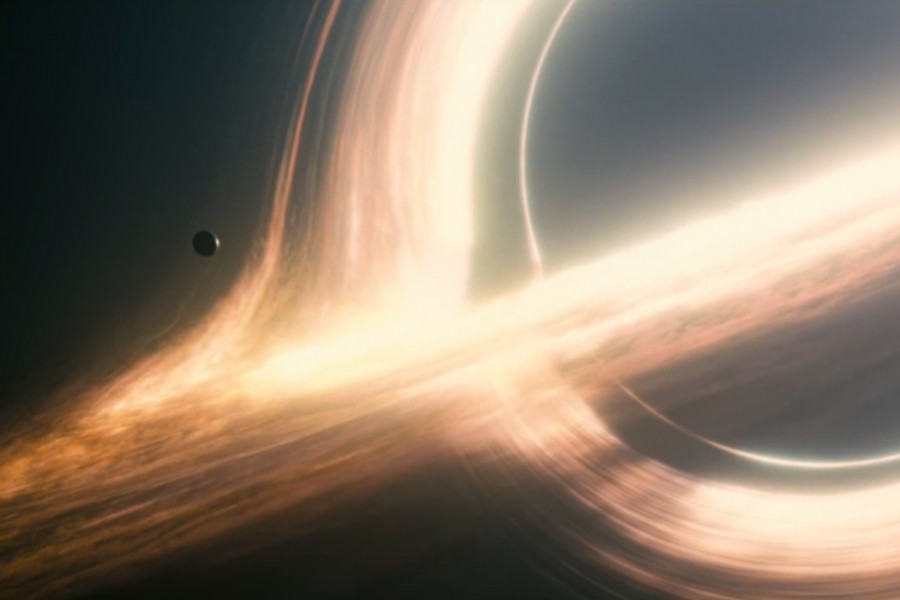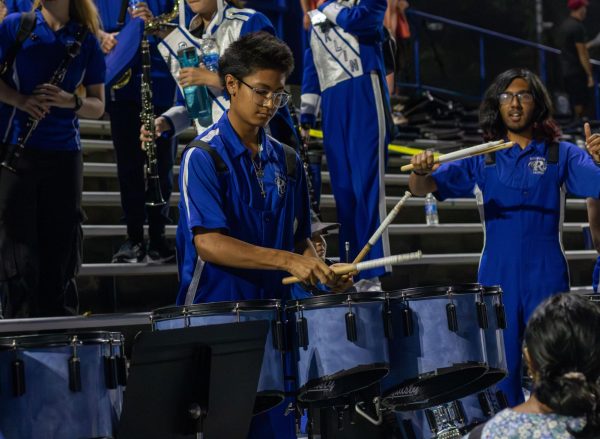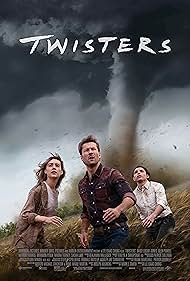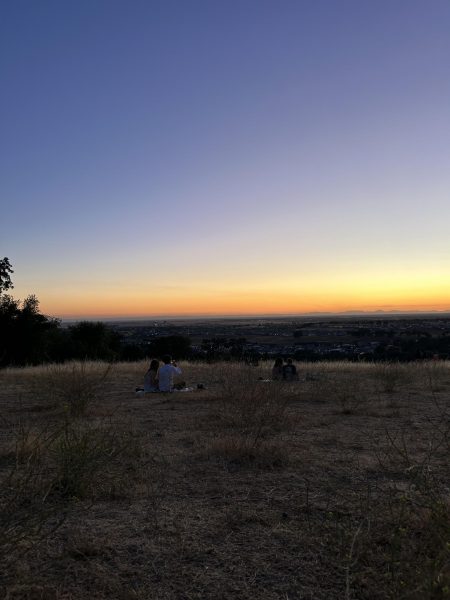“Interstellar” Leaves You Dazed and Confused
Ok, it’s only fair that you know I’ve been waiting for this movie for months. As a lover of all things astronomical, I heard about this movie a year or two ago — I believe before the cast was even announced. All I knew was it was called “Interstellar,” it was a scientifically accurate space movie, and it was directed by the great Christopher Nolan (Memento, Inception, The Dark Knight). Naturally, I was on-board from day one.
Drawing influence from Kubrick’s 2001: A Space Odyssey, Nolan and his brother wrote a story about the likely future of our planet. Dr. Kip Thorne, PhD (whose name sounds like it’s straight out of Star Wars), a friend and colleague of Carl Sagan and Stephen Hawking among others, was contracted to use his knowledge of black holes and relativity to help the Nolan brothers write a scientifically accurate film. In fact, his work led to some amazing equations that provided new insight into what black holes actually look like.
Interstellar is obviously a product of Nolan, whose love of the old school styles meant that many of the visuals were totally practical. Also, the film was literally that, as it was shot on film, with IMAX cameras doing the majority of the work. Ultimately, the film succumbed to one of the major flaws of space-thrillers: it ends up feeling like a mashup of 2001, Gravity, Contact, Event Horizon, and Sunshine.
The cast features Matthew McConaughey, Anne Hathaway, and Jessica Chastain, with help from Michael Caine, John Lithgow, Casey Affleck, and a huge special guest star who intersects the story later in the movie.
The depiction of a rotating black hole was truly mind-bending. The way the accretion disk wraps up around the vertical axis while still maintaining itself on the horizontal axis really isn’t easy to comprehend. That feeling, the one that makes you ask yourself if you could be under the influence of hallucinogens, was fairly common throughout the film. The film was stunning, but those same moments caused confusion and left you wondering what was happening, and why.
Even though I love learning about astrophysics, especially the theoretical, time-bending, reality-wrecking stuff in the movie, I found it difficult to follow. There are a few key concepts you need to understand to even begin to keep up with the film: time dilation, frame dragging, special relativity in general, black hole theory, Einstein-Rosen bridge theory, and a concept of a three, four, and five dimensional reality.
Only once in the film does a character stop to try and explain something in simple enough terms for the audience, and it’s a brief explanation we saw in Event Horizon. This brutal progress regardless of comprehension brings a gambit of realism that other similar movies lack, but loses the degree of understanding the audience has of the situation.
Personally, the rules of the black hole/wormhole were lost upon me. The side they went into was a wormhole, but on the other side was a rotating black hole. Honestly, I still am not sure about what happened and what the rules were. Which is understandable, given that the theory behind wormholes lacks any observational proof as of yet. It’s hard to explain the theory of something without proof of the actual phenomena, so the movie just saves itself some of the screen time it would waste.
The backdrop (or main attraction for those few people like myself) of physics was juxtaposed with a solid performance from the cast. McConaughey’s character was clearly a strong-willed, loving father, but it was clear to see the naked ambition that caused him to leave his family so suddenly.
Jessica Chastain and Casey Affleck played his children, and while Affleck performed well, Chastain continues to perform beautifully, it was clear to see the years of resentment her character has had stewing inside her. Chastain’s intensity is completely engulfing, and is an aspect I’ve seen in action stars like Jeremy Renner and Karl Urban, but never before done so well by a woman.
There were a few deaths, and I loved the fact that for most of them, the character was gone in an instant. Nolan conserved screen time and simply plucked the life from a character in chaotic moments with no time to spend mourning.
One of my favorite aspects of the film was its utilization of time as a relative variable. It beautifully weaved the difference in the passage of time into the story, and used it to great affect.
In the end, I loved this movie. With that being said, I don’t think it’s right for most people. For all the astrophysics majors out there, this may very well be the greatest movie of all time.
Most of us aren’t astrophysicists though, so it’s easy to get lost in the seemingly meaningless techno-babble. The film’s refusal to slow down made it a better, more realistic film, but also much harder to enjoy and less appealing en mass.
In 10, 20, maybe even 30 years, when everyone understands these concepts, this film will probably be looked upon with the same respect that 2001 is. For now though, those who don’t enjoy being left with very little understanding of the rules and reasons of a story should probably go see Big Hero 6. As for me, it’s time to go see it again!













